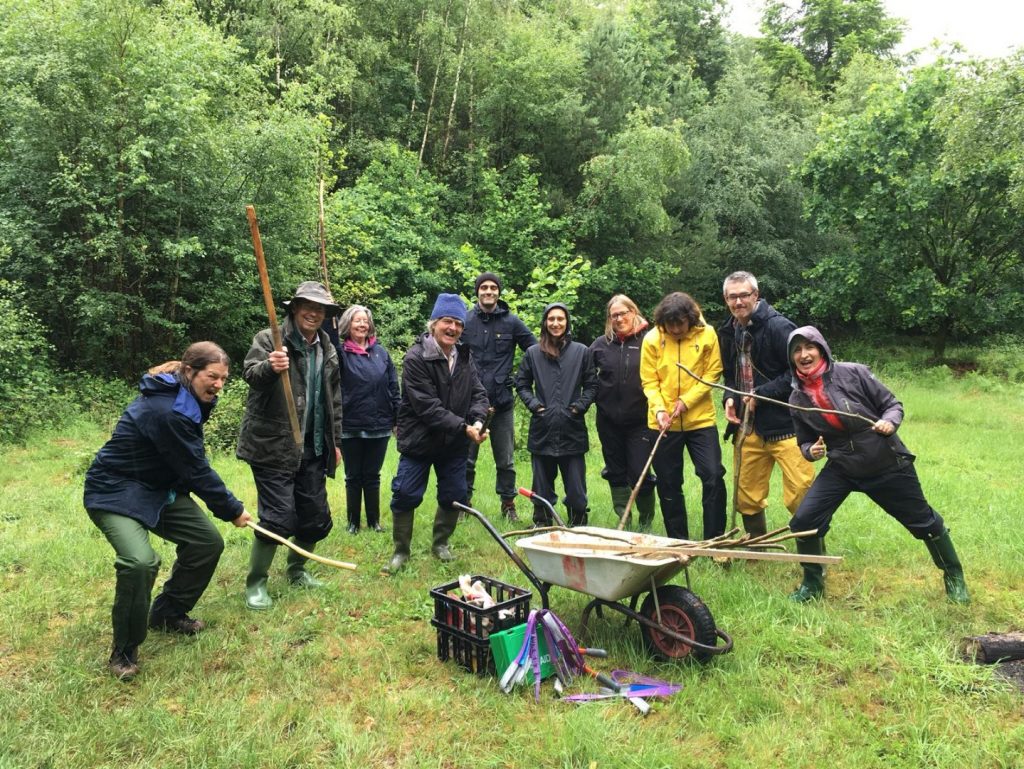To raise your wellbeing, learn from extremes
Insights from a Woodland Resilience Immersion for GP’s
This is embarrassing for me to admit as a resilience expert, but I have been struggling to sustain my own wellbeing and morale in recent months. The combination of huge, apparently insoluble problems on the climate change and political fronts has really ground me down. However, I came back from co-leading a resilience workshop at Hazel Hill Wood for GP’s feeling quite perked up.

My mother’s adage, “there’s always someone worse off than you,” is certainly true of GP’s. Figuring out what could help them with such ongoing, systemic stress was a challenge, but I learned a lot for myself. The basic problem for GP’s is there for all of us to see, but few of us look. A ‘normal’ session for a GP is four hours, during which they’re expected to see a new patient every ten minutes.
My main co-leader for these groups is Emeritus Professor David Peters, who has practisedas a doctor for over forty years, and is an expert on the neurophysiology of medical work. As he eloquently explained to us, “humans are able to find empathy for a few strangers, but not for twenty-four sick patients coming at you every ten minutes”.
It’s clear that something will have to give. David described how, somewhere during a four-hour session the sympathetic nervous system will be overwhelmed and exhausted, and the parasympathetic will take over. David explained, “at that stage you’ll get stupid and unfriendly, and you won’t have the awareness to know it.” This helps explain why the burnout rate among GP’s is so high, and why their depression rate is three times the UK average.
So what can help? We offered a range of interventions that need only take a few minutes, recognisingthis is as much as is realistic. David offered a simple breathing exercise. We talked about mindfulness and simple body awareness. I took the group into the wood, invited them to lean against a tree to relax, and to remember that tree as a cue in the workplace.
The doctors also liked a very brief centering meditation, which could help with daily aggravations in a few minutes. This is the Treeheart Process, now on my website. In essence, this is another way of using the analogy with trees as a model of resilience. It invites you to root yourself in the reality of your situation, to stand patiently like a tree trunk to observe it, and then to find trust that can branch out into a fruitful outcome.
We have run three resilience immersions for hospital doctors at Hazel Hill Wood, but this was the first for GP’s, and the contrast is intriguing. For GP’s, isolation is a big issue: they can easily work all day without talking to a colleague. And they often have to diagnose from limited data, whereas hospitals have a great array of test equipment.
Another process which clearly helped reduce stress was some circle time: a chance to share issues, and get support and insights. My work with GP’s and hospital doctors has shown how hard it is for them to find this: in their culture, it’s a sign of weakness to talk like this to colleagues, and they often rule out sharing with family or friends, because “non-medics wouldn’t understand”. But all of us need this kind of support.
What’s very evident for GP’s is that they need to choose to interrupt the inherent exhaustion of their sessions, for a few minutes, probably every 60-90 minutes. Doing this helps not only their own wellbeing, but their ability to deliver patient care effectively and empathetically.
We also looked at more systemic issues. The GP’s liked my ‘roots and fruits’ analogy: if you’re cultivating a fruit tree, you have to balance resources and outputs. To do so, you either need to nourish the roots more, or prune back on the branches. Some of our GP’s had already found ingenious ways to do this. Several worked only part-time as GP’s, alongside less exhausting roles. One told her practice to keep paying her for ten minutes per patient, but actually booked them all in on fifteen-minute slots.
The stress level on GP’s is obviously outrageous. For most of us, it’s far less obvious, but I believe we’re all having to live with an ongoing and rising overload of stress and uncertainty. The key lesson I learned for myself from the GP’s was that I too need to intervene, consciously and very frequently, to reduce my stress levels. And that’s the insight I offer you.
For more information on resilience programmesat Hazel Hill Wood for healthcare professionals see https://www.hazelhill.org.uk/woodland-resilience-immersions/
